- Plan Your Studies
- Study Programs
- Universities
- Requirements
- Living in Germany
- Accommodation
- Statistics & News


How to Apply for a PhD in Germany: Programs, Funding, & FAQs
Germany is an excellent destination for both young and experienced researchers.
The European country is third behind the U.S. and China for research & development expenditure . Plus, it is home to some of the most prestigious (and affordable!) research universities in the world.
If you’re considering doing a PhD in Germany, you will need to follow these steps:
The main steps to doing a PhD in Germany:
- Find a PhD Program and a Supervisor
- Decide Between Individual and Structured PhD Programs
- Meet All Requirements & Prepare Your Application
- Apply for Doctoral Studies
- Secure Funding
- Get a Student Visa or Resident Permit
- Arrive in Germany and Begin Your PhD Program
Why Pursue a PhD in Germany?
If you’re not yet sure if you should choose Germany for your PhD studies, here are some compelling reasons why you should consider it:
- Top-tier universities. Four German universities are ranked in the top 100 global universities, and many more are in the top 200.
- Large international student community. Germany welcomes a diverse and thriving international student community. Over 458,210 international students are currently studying in the country.
- Quality research institutions. There are over a thousand publicly funded research institutions (universities, universities of applied sciences, research institutes, businesses, and government bodies) that you can choose from in Germany.
- High investment in research and development. Germany’s public expenditure in the research and development sector reached a record high of 112.6 billion euros in 2021.
- Strong economy. Germany is known for its strong and stable economy. After completing your PhD, there are plenty of employment opportunities in the academic, business, and research sectors.
How to Apply for a PhD in Germany
From finding the perfect program for you to submitting your application and starting your PhD, here are all the steps you need to take:

Study at Berlin School of Business and Innovation
Creating Tomorrow's Industry Leaders
1. Find a PhD Program and a Supervisor
After all the years of studying leading up to this step, you most likely have a few areas of interest you want to do your research in.
This is the first important step: define your research focus by considering your interests and academic background. If you need more help, you can consult online resources from research universities. Or, even better, you can discuss your decision to pursue a PhD with academic communities online or offline and seek advice from current PhD students in Germany who can tell you more about their individual experiences.
If you already know what your research direction is, you can begin searching for suitable programs right ahead.
- The German Academic Exchange Service (DAAD) has an extensive list of current opportunities, which you can look up at the DAAD PhD Database .
- Another option is to research universities in Germany individually to find the newest opportunities and offerings at each institution.
You will also have to find a supervisor. The best way to do this is to go to university websites and find faculty directories with profiles of professors and their research fields/current projects. Contact professors whose work aligns with your interests via email to inquire about supervision opportunities.
> Search PhD programs from 31,000 research institutions listed on the GERiT database .
Types of PhD Programs in Germany
There are two different paths you can take when pursuing a PhD: individual PhD programs and structured PhD programs. Each comes with its own set of advantages and requirements.
2. Verify That You Meet All Requirements & Prepare the Application
Requirements and application documents to apply for a PhD in Germany are specific to the institution and research area you’re applying to. But, as a general guideline, you should prepare the following:
- Academic degree recognized in Germany. You need a master’s degree or a German state examination (Staatsexamen) in a field relevant to the PhD program to qualify.
- Copy of master’s thesis. Submit a copy of your master’s thesis. The work should demonstrate your research skills and the depth of your academic work.
- Research proposal. Craft a clear and detailed research proposal that includes your intended research topic, objectives, methodology, and significance.
- Statement of purpose. Write a statement of purpose why you want to do a PhD in your chosen field, your academic and career goals, and how this program aligns with them.
- Curriculum Vitae (CV). Prepare a detailed CV highlighting your academic achievements, research experience, relevant coursework, publications, and any other qualifications.
- Proof of language proficiency. Depending on the language of instruction, you may have to provide proof of language proficiency in English and/or German. You can do this with certificates like TestDaF and DSH for German or TOEFL and IELTS for English. Proof of previous studies in the language is also sufficient.
- Academic references. Provide contact information or recommendation letters from professors/ academic advisors who can attest to your academic abilities and potential.
- Predoctoral examination. Some programs ask that you pass a predoctoral examination as part of the application process.
3. Apply for Doctoral Studies
After finding a suitable PhD program and mentor, and making sure your academic qualifications are recognized, you can send in your application.
You can send in your application online or by post, depending on the hosting institution’s preferences. To make sure, check their guidelines and specifications. Admission committees are selective, so you may also have to attend an interview soon in the application process.
4. Secure Funding
You must demonstrate access to a minimum of €934 per month (€11,208 per year) to meet visa requirements and live comfortably while you’re in Germany. You can prove this through an admission agreement or relevant PhD contract, or you can open a blocked account with individual funds.
There are many ways to support yourself financially while pursuing a PhD in Germany:
- PhD scholarships. DAAD offers the highest number of doctoral scholarships. PhD students get an average monthly stipend of €1,139.
- Paid PhD positions. Many universities and research institutions offer paid PhD positions in Germany. You will work on specific research projects on a contract and receive a salary.
- Research associate positions. You can also work as a research associate in a university, research institution, or company and receive a salary as compensation.
- Part-time jobs. Some PhD students/researchers work part-time jobs that are not related to their studies for extra income.
> Read more about the costs of studying in Germany.
> Discover PhD scholarships in Germany.
5. Get a Student Visa or Resident Permit
If the institution confirms your place in the PhD program, next in line is applying for a student visa or residence permit. The requirements for a German PhD visa or permit can vary depending on your nationality and circumstances:
Visa Requirements
If you’re a citizen of the European Union (EU), the European Economic Area (EEA), or Switzerland, you don’t need a special permit or visa for a PhD in Germany. You can enter the country for research and work purposes with a valid passport or ID card.
Otherwise, you will need a visa and/or a residence permit to do your PhD in Germany. Nationals of some countries, including the United States, Australia, Israel, Japan, and Korea, don’t need a visa but must apply for a residence permit.
Depending on the circumstances, you need one of the following visas:
- Study visa. If you’re pursuing a full-time doctoral program.
- Research visa. If your focus is on research and you have a formal affiliation with a research institution in Germany.
- EU Blue Card. If your PhD contract pays a gross annual salary of at least €45,300 (or €41,041.80 in certain professions), you can apply for an EU Blue Card . This is a special residence title for international academics and other professionals.
Residence Permit Requirements
If you come to Germany on a visa, you will need to apply for a residence permit within three months of arrival. This also applies to nationals of countries outside the EU, EEA, and Switzerland who are exempt from the visa requirement.
You can apply for one of the following residence permits:
- Study permit. If you’re accepted into a PhD program at a German university, apply for a study-based residence permit. It lasts up to two years, extendable.
- Research permit. If you’re a researcher with the right qualifications for doctoral programs, apply for a research permit. This requires a contract with a research institution for your project.
- EU Blue Card. With a PhD offer that has a minimum salary of €45,300 per year, or €41,041.80 for some bottleneck professions , you may be eligible for the EU Blue Card. Apply for this permit if you meet the criteria.
> For more specific information tailored to your situation, we recommend contacting the German embassy or consulate in your home country. You can also use this visa navigator.
6. Arrive in Germany and Begin Your PhD Program
The most exciting step of all is near—time to unpack your bags and begin your life as a PhD student or researcher in Germany. Once you’re settled in, there are some formalities you need to take care of.
The international office at the university or another representative can guide you best on this. However, here are some of the main things you need to do once you arrive in Germany:
Register Your Residence
Shortly after your arrival, you must register your residence at the local registration office (Einwohnermeldeamt or Bürgeramt). This is mandatory, and you typically have a window of two weeks to complete this process.
Get Health Insurance
Everyone in Germany is required by law to have health insurance coverage. This includes international PhD students. Depending on the source of your funding, you are eligible for one of the following health insurance coverages:
- Doctoral candidates with an employment contract are automatically insured with a state-regulated health insurance provider (Gesetzliche Krankenversicherung-GKV) in most cases.
- Doctoral candidates without an employment contract (with a fellowship or private funding) can choose between:
- Voluntary health insurance coverage with a state-regulated provider.
- Coverage with a private health insurance company.
There are some exceptions in which you can use your insurance from your home country. These apply to students from a European Union (EU) country or other countries with social security agreements with Germany.
Open a Bank Account
You should open a German bank account as soon as possible. Most financial transactions in Germany, including receiving your stipend or salary, are done through a German bank account.
Enroll at the University
If your PhD program is part of a university degree, you need to enroll as a student at the university. Follow your university’s instructions to submit the necessary documents to the enrollment office. These usually include your admission letter, passport, proof of health insurance, and semester fee.
After you complete this process, you will receive an Enrollment Certificate (Immatrikulationsbescheinigung). This is a very important document that you most likely need in the future.
Frequently Asked Questions (FAQs)
There’s a lot of planning involved if you’re considering doing a PhD, especially if it’s in a foreign country. We’re sure you’ve got more questions, and we’re here to help.
How Long Does It Take to Get a PhD in Germany?
A PhD in Germany usually takes between three to six years to complete. Just like in other countries, it can take longer or shorter than expected, depending on several factors. The type of PhD you choose (structured programs can be more rigid), your subject area, and individual progress can all make a difference in the time it takes to get a PhD in Germany.
Are PhD Programs in Germany Tuition-Free?
The majority of PhD programs in Germany are tuition-free, at least for the first six semesters. However, if need to enroll at a university for your PhD, there is a small semester fee you need to cover. The fee can be higher or lower depending on the university, but it usually falls within the range of €100 to €350.
Is German Mandatory to Pursue a PhD in Germany?
You don’t necessarily have to know German to do a PhD in Germany. In fact, most PhD programs in Germany are in English, especially in fields such as science, engineering, and humanities. In these programs, you can both write your thesis and communicate with your advisor and peers in English.
There is of course the chance that the program you’ve chosen is in German or requires knowledge of German (in most cases, in addition to English). In this case, you have to prove your proficiency through a recognized language certificate or proof of previous studies in German.
Even if German isn’t mandatory, we strongly encourage you to learn the basics. They will be super helpful in daily interactions and getting accustomed to life in Germany.
How Much Does a PhD Student Earn in Germany?
Most PhD candidates in Germany receive financial support in the form of a salary or grant. This includes candidates affiliated with universities, research institutes, or company collaborations.
The majority of doctoral positions are structured under either the Collective Agreement for Civil Service TVöD (Tarifvertrag für den öffentlichen Dienst or the Collective Agreement for the Civil Service of Individual Federal States TV-L (Tarifvertrag der Länder). Since universities are funded by their respective federal government, if your PhD is affiliated with one, your salary will be structured under the TV-L.
Doctoral positions fall within the TV-L 13 category, with a salary range spanning from €4,188 (Tier 1) to €6,037 (Tier 6). The difference between the tiers (Stufe) depends on prior experience in the field. If you don’t have any research experience, you will fall under Tier 1 and progress to the other tiers throughout your PhD.
Your salary will ultimately be determined based on a wage agreement that specifies the contract tier (Stufe) and working hours (percentage-based). Many entry-level PhD students start with tier 1 contracts that are not full-time. For example, if your contract places you in Pay Group E-13 Tier 1 of the TV-L and you work at 75% capacity, your monthly gross salary will be €3,141.
> Learn more about pay ranges for PhD students using this convenient calculator .
Can I Work While Pursuing a PhD in Germany?
Part-time work is an option in most cases unless it’s strictly stated otherwise in your contract. Whether or not you are allowed to work on the side as a PhD in Germany depends on the working hours stated in your PhD contract, supervisor, and other specific circumstances.
However, since the PhD is considered a job in itself, it’s usually frowned upon to have a side hustle. Even if you have a 50% contract, a PhD is demanding and requires long hours of work and research. If you choose to work on the side, make sure to find the right balance between work and your PhD commitments. To be on the safe side, it’s best to talk to your supervisor and go over all the legal and contractual obligations related to your PhD.
What Is the Process for Defending a PhD Thesis in Germany?
Here are the main steps to defending your PhD thesis in Germany:
- Submit your thesis. The first step is submitting submit your thesis and supporting documents in adherence to all the formal requirements. A commission will be formed, and in some cases, you can suggest reviewers.
- Oral defense. The next step is preparing and undergoing an oral defense, which can take between 30 minutes to 2 hours. During this time, you will present your research and discuss it with the committee. The defense can be either public or private.
- Receive the title and publish your work. The outcome of the discussion determines your final grade, to be received after the defense. If everything goes well, you’re granted the Ph.D. title and have about two years to publish your dissertation.
What Are the Career Prospects Like After Doing a PhD in Germany?
Career prospects after a PhD in Germany are quite promising.
The most common paths for PhD holders in Germany are either in academia as professors or post-doctorate researchers or in industry positions.
Technology, healthcare, and finance, in particular, are some of the most in-demand industries in Germany. The country’s strong economy and research-oriented environment make it an attractive place to develop your career.
Join 262,114 students interested in studying in Germany

Download The Guide

Quick Links
8 Steps to Study in Germany How To Apply To Study in Germany German Education System Requirements Universities in Germany International Programmes Financing Your Studies German Student Visa German Health Insurance Germany Blocked Account Learn German Guide German Cities Cost of Living
Latest News and Statistics
Bachelor students in germany more likely to drop out within first academic year, higher education in germany: key trends & statistics, new study reveals high level of satisfaction among students at german universities, germany scholarships up by 3% in 2023 – 31,400 students benefited, indians overcome chinese as top source of international students in germany.
- Privacy Policy
- Cookie Policy
- Value Package
- Blocked Account
- Health Insurance
- Bank Account
- Study Finder
- Study Eligibility Checker
- Accommodation
- Learn German
What We Offer
- Living in Germany
- Studying in Germany
- Working in Germany
About Germany
- German Cities
- Tourism in Germany
- German Culture
- Visa for Germany
- Costs of Living in Germany
- Finance in Germany
- Health Insurance in Germany
- Driving in Germany
- Renting in Germany
- German Universities
- Free Studies in Germany
- German Education System
- Germany vs. other Study Destination
- German Degrees
- Application Process to Study in Germany
- Financing your Studies in Germany
- Best Universities in Germany
- German Business Culture
- Best Cities in Germany for Expats
- After your Bachelor's in Germany
- After your Master's in Germany
- About Expatrio
- Partner log in
- Partner Log-in
PhD in Germany [Complete Guide]

Few achievements in life match the feeling of being awarded a PhD. Doctorates represent the pinnacle of academic achievement, and require years of diligent study.
The rewards, however, are great. Not only does a Ph.D. give you bragging rights at cocktail parties, but it also provides excellent job prospects and earning potential. But what if you want to study for a PhD outside of your home country?
Germany is an increasingly popular destination for international students, offering high-quality education and research facilities at a fraction of the cost of studying in the US or UK. Germany offers and takes research extremely seriously, and is one of the world's most popular places to study for a PhD or higher education.
But what kinds of PhDs are available, how much do they cost, and how do students apply? Let's find out.
General information
Germany is widely seen as one of the best places to apply for a PhD worldwide
The country offers excellent education and research facilities as well as competitive funding opportunities for doctoral students.
There are different types of Ph.D. programs in Germany. That's no surprise, as Germany invented the elite academic qualification in the 19th century . German PhDs cover subjects as diverse as history, linguistics, and philosophy, or chemistry, molecular biology, earth sciences, and computer science. Most lower level degree subjects can be extended to PhD level if the student desires.
How can I get a PhD in Germany?
There are two main ways to complete a PhD in Germany. Most commonly, students form a working relationship with a specific Doktorvater or Doktormutter (or "supervisor" in English). They then work on a tightly focused research task for the duration of their studies. The fruits of their university research are then presented as a "Doctorate" ( Doktorarbeit ), which tends to resemble a medium-length book.
In some cases, "Structured" PHDs are available . These resemble taught Masters degrees, but still have a strong research element. They may also focus on work placements.
How long does it take to get a PhD in Germany?
Generally speaking, a standard research-oriented German doctorate can be obtained within 4-6 years . This depends on the speed of work and personal factors such as having children. Structured doctorates can often be completed in just 3 years , but this varies from course to course.
International PhD Programs
Germany welcomes international students to study at PhD level
Many programs offer specialist assistance and course structures for overseas students.
DAAD (the German Academic Exchange Service) brings together grants for international students at leading German universities . It's the best place to start hunting for scholarships to help fund your studies .
Is a PhD in Germany free?
PhDs at German universities are usually available free of charge for international students , but living costs aren't covered. However, scholarships can cover (most) living costs. DAAD grants will average around €1,200 per month , and additional funding sources may be available.
A group of prominent universities has also created a funding scheme called StipendumPlus , which also distributes grants. Between them, finding financial help should be possible.
Do PhD students get paid in Germany?
It's not routine for international students to be paid for their work , but it is definitely possible to find paid research posts. Enquire with your supervisor, and you may find that paid jobs are available to supplement your income.
How to find your PhD Position
Finding the right PhD is essential
It's a huge investment of both finances and time , and could change the course of your life. So here are some useful tips to remember.
Take time to find a supervisor you want to work with. Balance their academic record with the resources of the university, and have a chat with them if possible. You need to be able to work with them on a daily basis.
- Searching for doctorate programs has been made much easier by databases like DAAD . Use them to assess every option.
- Consult university rankings to avoid poor-quality teaching.
- Check for services like career advice and travel grants. As a PhD researcher, you may need to travel worldwide, and this can be expensive.
- Ask about work opportunities as well. Research posts at your university are the best way to add some extra income, while gaining relevant experience.
Requirements and Application
Before you can commence doctorate studies in Germany, you'll need to complete an application process
If you want to study a traditional PhD, applications must be carried out via your prospective supervisor .
When you contact the supervisor and they agree to work with you, they will forward your request to the relevant faculty . The department will then request:
- A statement from your supervisor
- Proof of your academic qualification
- 1-2 academic references
- Proof of language proficiency
- A valid student visa and health insurance
Structured PhDs don't require students to go through a supervisor. In those cases, applications are made via the faculty, and will usually be carried out via online portals.
To study a PhD, requirements generally demand a Masters degree (8 semesters of university education), as well as English and German proficiency to a high level.
IELTS English certificates , and TestDaf German courses are advisable for all doctoral candidates, even if they have studied those languages in the past.
PhDs are a huge investment of both finances and time, so it's important to do your research before choosing a supervisor and program. Make sure to consult university rankings and databases like DAAD when making your decision. Once you've been accepted into a program, make sure to apply for scholarships and grants to help cover your living costs.
Finally, remember to ask about work opportunities as well – research posts are a great way to gain relevant experience and supplement your income.
Find Your Perfect Match
Search by city, major, or field of study and find your dream study program in Germany.
Best German Universities for Medicine
Renting In Germany [House Rules]
Guide to Studying in Germany With Your Family
This might also be of interest to you

Pre-Studies & Studienkolleg in Germany
Germans are huge believers in preparation, and that's especially the case in the higher education sector. German universities welcome international...

Few achievements in life match the feeling of being awarded a PhD. Doctorates represent the pinnacle of academic achievement, and require years of...

German Language Course Degrees [Guide]
Learning German is an essential step for almost everyone who makes their home in the country, and it can also be one of the most enjoyable...

Master's Degree in Germany [Guide]
Germans value skills above almost everything else, and the nation's universities offer a vast range of subjects, in M.A., M.Sc., and M.Eng. formats.
![phd length germany MBBS in Germany [Complete guide]](https://8668267.fs1.hubspotusercontent-na1.net/hub/8668267/hubfs/Expatrio%20Hatch%20Child%20-%20Theme/Blog%20Graphics/Studying%20in%20Germany/mbbs%20in%20germany.webp?width=374&name=mbbs%20in%20germany.webp)
MBBS in Germany [Complete guide]
If you want to obtain a "Bachelor of Medicine, Bachelor of Surgery" (MBBS) qualification, studying abroad is often the best route to choose. Germany...

Best English-taught Master Programs in Germany
Germany is renowned for its high-quality education, and many of its universities rank among the best in the world. Additionally, studying in Germany...
- Driving License
- Driving Education
- Drive in Germany
- German License
- Driving Schools
- Traffic Signs
- Traffic Violations
- Tips & Advise
- Study in Germany
- Life in Germany
- Germany Visa

Study PhD in Germany, Procedure & Requirements
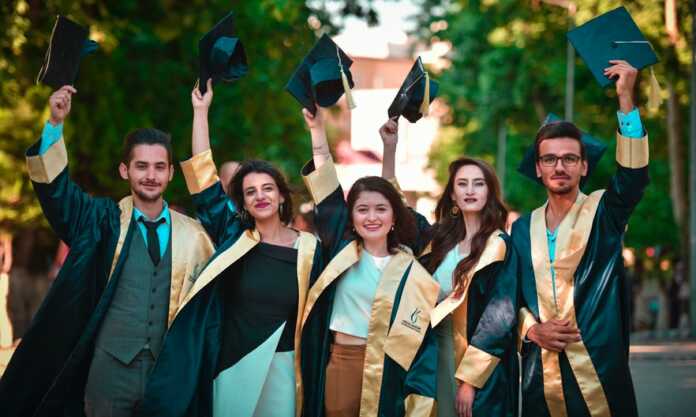
If you want to study PhD in Germany, you need to equip yourself with complete details of its eligibility and procedure. A Doctor of Philosophy is the highest university degree. After completing your master’s study many looks for PhD offered across the world. For a PhD, you need to do extensive study and research. Germany has attracted students in bulk for PhD studies. If you want to be one of those students go through this article. [adinserter block=”1″]
Structured PhD
Academic degrees, find phd in germany, good living conditions, phd in germany.
Germany is an excellent country to study PhD. Germany offers two types of PhD and diverse disciplines to select from. There is a very high chance of your finding a PhD program of your interest in Germany. In addition, it equips you with guaranteed success in your profession after completion of your studies.
Types of PhD
There are two types of PhD offered in Germany. These are:
Individual/traditional doctorate
An individual doctorate is independent and flexible. It allows you to choose your own supervisor, to conduct a research project of your choice and arrange your study activities on your accord. You identify a research project and pursue it independently.
- The candidate selects the institution where they would prefer to carry out their research either at a university or non-university organization or within a German company.
- There is no compulsory attendance, deadlines or curriculum.
- You will focus on completing your research and writing a thesis.
- The supervisor will have little input into the content of your project and you will be expected to largely work independently towards your own thesis.
- Students will have to submit a thesis and complete an oral presentation and examination of their work in front of at least two professors in related fields.
- The oral examinations test your wider knowledge in the field.
- In some cases, the oral examinations are replaced with a defence of your thesis. The thesis defence focuses more on the research you have conducted and why you did it.
[adinserter block=”1″]
Structured PhD is internationally-oriented. You will work individually and collaboratively on wider research projects with the students and team of academics within the programs. You have to complete additional training alongside your thesis. It also includes collaborations and placements with external research institutes.
- It involves completing compulsory lectures, seminars and interim assessments on research related topics.
- You will attend transferable skills training in academic/scientific methods and soft skills.
- Students are tutored by supervisors under the strict program curriculum.
- There is actually a team of supervisors who look after all the PhD students within a doctoral program. So there is more support and training from supervisors and other members of your programs.
- You have to complete several compulsory units in order to attain the 180-240 ECTS credits that are typically required for doctoral students.
- You will be assessed on your knowledge of course content delivered in lectures and seminars. And you will have to submit a thesis, and complete the oral examinations.
Admission requirements for PhD in Germany
To study PhD in Germany you need the following documents:
CV ( Curriculum Vita)
You need to have a good CV. It must contain detailed working experience, educational background, publications, experiences etc. Your CV is preferred if it is in Europass format .
A doctoral thesis outline
When applying to the university you need to make sure to properly present the outline of what your doctoral thesis research will be about. It must contain your intention of doing this study, how it will benefit in future and its need.

Qualification equivalent
Your qualification should be equivalent to German masters qualification to make you eligible for the doctorate. In case you have not studied Master at a German university, you need to make sure if your educational qualification is eligible for doctoral studies. For this, you can check your education equivalence to German education grades in the official database of Anabin . You can also check it on DAAD .
German language proficiency
[adinserter block=”1″] Mostly for PhD German language proficiency is not required. As most PhDs are offered in English. However, international students can proof proficiency in the German language by DSH and the TestDaF.
English proficiency test
If you are not a native speaker then you need to prove your English proficiency. You can give IELTS and TOEFL to prove this.
GRE or GMAT
Some universities also require GRE or GMAT with specific scores to get admission to Doctoral studies.
Motivational letter
You need a detailed motivational letter . Your letter should reflect your character, goals, and ambitions. The motivational letter serves as a purpose to define you and your goals to study a doctorate in Germany.
Recommendation letter
You need at least two academic recommendation letters from your university. In case of experience of job/internship, you need an additional recommendation letter from your employer.
Your Academic Degrees (matriculation, intermediate, bachelors, masters) their copies and certified translation (only in case of requirement). Your Academic Transcripts copies if required you should provide the grading scale used in your University and the certified translation.
Steps before applying
Get your earlier education recognized.
- Firstly consult the online database of “Anabin”. It gives you a quick country-specific search according to your qualification recognition in Germany.
- There is another method to check your earlier education equivalence. An alternative way is DAAD’s online database.
Get your documents certified
Your documents have to be certified/notarized in order to apply for a PhD in Germany.
- You have to get your degrees attested by HEC and by Consulate.
- Get the copies of your documents (Matriculation result, Intermediate result, Bachelors/masters Transcript & Degree, IELTS/TOEFL) notarized by a lawyer if required.
Since there are two types of PhD you have to select the type you want to study. In case of selection, you specifically search your interest by following resources:

- To study individual doctorate you need to find an appropriate university. You can look for a supervisor and appropriate program through the database like DAAD, PhdGermany.de, Hochschulkompass.de., the research explores.
- To study structured doctorate you can look on DAAD, DFG, Helmholtz association, max plank society.
Applying in PhD
The method of applying can vary depending upon your search and choice of PhD. The basic procedure is as follow: [adinserter block=”1″]
- Find the appropriate PhD program and also a supervisor in case of individual doctorate.
- Collect all the required documents as specified by the applied program.
- Complete the application form with accurate data.
- Then you either have to upload scanned copies of these document or you have to send your documents through DHL.
- You may also have to write an appropriate email to your supervisor.
- After you have applied wait for a response. In case you are accepted, you will be contacted for an interview.
- The interview is conducted through Skype calls (more than one in some cases). In case you pass all through interviews you are sent admission letter.
- Then you have to obtain a student visa to go to Germany.
Duration of PhD in Germany
The length of PhDs is not standard. It varies from 3–6 years. And it also greatly depends upon your research.
Advantages of doing PhD in Germany
Recognized institutes.
Germany has many globally-ranked institutions compared to other countries. Doing a PhD from Germany will equip you with a world-recognized degree. Germany is a pioneer of PhD studies. So it has a highly developed institution. That develops you professionally.
Wide variety of research disciplines
Germany offers a wide variety of research and study fields for PhD. Whatever research or study you want to pursue for your PhD, you may be able to do it in Germany. Germany offers PhD in wide-ranged programs that can support your connection with previous studies.
Most German institutes charge no tuition fees for PhD students, regardless of nationality. Mostly students only have to pay semester contribution fee that is usually up to 250 Euros per semester.
Scholarships available
There are many funding opportunities available for students who cannot afford to move to Germany. You can find many organizations and programs that support individuals and groups for doctoral studies and the research activity. The most popular are German Research Foundation (DFG) and the German Academic Exchange Service (DAAD) . There is also an Erasmus Mundus scholarship in which you can study in Germany for a year.
During your doctoral studies, there are high chances of getting a good job. There are great opportunities, for doctoral candidates to get employment in university, as research associates. In addition, there are different programs and funding organizations, which provide employment contracts for doctoral students. You can also get a job outside your university or research institute.
Germany in regards to the lifestyle standards and quality stands among the top countries. Its economy is estimated to be among the largest economies worldwide. The labour market in Germany is highly developed and offers various opportunities, so qualified doctoral graduates can work in different relevant industries. Germany has developed a health care system, a greatly developed industry and education system. The country is also politically and economically stable which makes it a perfect place to live, study and work. [adinserter block=”1″]
Frequently asked questions
Is phd in germany for free.
Yes, Doctoral programs are tuition-free in Germany. You only have to pay a semester contribution fee that is usually up to 250 Euros per semester. But you will have to cover the cost of living. That includes your accommodation, food, health insurance etc. This can cost you about 800-1000 Euros per month. For this, you have to fund your living yourself or you could find some finding organization.

How long does it take to get a PhD in Germany?
It can usually take from 3-6 years to complete your PhD. But it depends upon your research area. PhD in nature and sciences are usually 4 and 5 years long. In arts and humanities, a PhD can be completed in 4 to 6 years.

Do PhD students get paid in Germany?
Some institutes offer a paid PhD. For this, you have to apply specifically for paid PhD. In this case, either your supervisor or the institute pays you for PhD. You can also find different funding organizations to fund you like DAAD.
Is GRE required for PhD in Germany?
GRE is not compulsory for PhD in Germany. Most PhD only requires IELTS/TOEFL for English proficiency. However, if an institute requires GRE for admission. It will be particularly mentioned on their website. [adinserter block=”1″]
Is IELTS required for PhD in Germany?
In case you are a native English speaker (from EU state) you do not require IELTS. But if you are from the non-EU state, in order to prove the English proficiency you need to give IELTS/TOEFL.
Is there age limit to do PhD in Germany?
Mostly age is not a factor when it comes to studying in Germany. In Germany your ability and interest count. But it is advised to do your PhD before age of 50 in Germany.
Can spouse of PhD student work in Germany?
If your duration of stay is longer than one year in Germany and you have a residence permit, than family reunification is possible. However, you have to be able to support your family financially in order for them to join you. Spouses accompanying foreign students may under specific conditions, be permitted to work. To be able to work your spouse must have a residence permit or EU Blue Card.
How to find a supervisor for PhD in Germany?
In order to pursue the individual doctoral program at a university, you have to primarily find the supervisor who will mentor your research thesis and your study progress. In this case, if you find PhD program you have to email the supervisor. If they agree to be your mentor for PhD. You have to enrol at university to study your PhD.
Can you stay in Germany after PhD to look for job?
This is not a problem if you are from EU-state. However, if you are a non-EU graduate, there is a possibility for you to extend your residence permit. You can stay for up to one year under job-seeking purpose.
We hope this article helps you get admission to study PhD in Germany.
LEAVE A REPLY Cancel reply
Save my name, email, and website in this browser for the next time I comment.
Driving in Germany with a New Zealand License & Conversion Process
Drive in germany with a uk license & conversion process, drive in germany with a saudi license & conversion process, drive in germany with a south african license & conversion process, drive in germany with a mexican license & conversion process.
- Privacy Policy

Scholarships
Events & Webinars
Course Finder
Universities
Back to all Blogs

PhD in Germany: The Ultimate Guide
Ph.D. in Germany is almost free, if you’ve a great academic background. Get step-by-step directions on finding and applying for a suitable PhD in Germany for indian student.
How to Study a PhD In Germany?
As in many countries, the aim of the PhD program in Germany is to work on and publish a written doctoral thesis/dissertation . PhD degree is awarded based on examination of the thesis, which must be published in journals specified by the universities, and by an oral examination of thesis presentation.here are some top reasons to study in germany .
Let’s first understand the options you would have for a PhD in Germany -
What is University System in Germany?
There are mainly two types of higher education institutions in Germany -
- Universities (including Technische Universität, also called TU) are research-oriented institutions and offer a wide variety of subjects. Many of the universities also award PhD (usually called doctorate in Europe) degrees.
- Fachhochschulen (University of Applied Sciences, also called FH), are practice-oriented institutions and offer course mostly in engineering, business administration, social sciences and design. They do not award doctorates.
Bachelor’s and master’s degrees awarded by both types of universities (Universities and Fachhochschulen) are legally equivalent. After completing Master’s from either of the institution, you can get admission to a PhD program at a University.
Unlike in the US, a fter an Undergraduate (Bachelor’s) degree, you can directly get enrolled for a PhD program at a University in Germany. Most US universities only requires an Undergraduate degree for admission to PhD program but all of them will require you to take additional coursework.
Germany is also home to a number of prestigious research institutions, such as EMBL. These research institutions can’t award PhD degrees but they host a large number of PhD students for the major part of their doctorates. These students are jointly-supervised by a professor in a university (in Germany or abroad) from which the PhD will be awarded.
What are Types of PhDs in Germany?
Following are the two types of PhDs in Germany:
The traditional approach with Individual Doctorate
Under traditional approach, you need to identify a supervisor at a German university who is willing to guide for your research.
You get lots of flexibility in terms of no compulsory attendance, deadlines and curriculum . As you would largely be working independently, you are expected to work hard and demonstrate more personal initiative and responsibility.
In addition to conducting research work at a university, you could also complete a project at a non-university research organization or at a German company in the industrial sector.
The average length of this kind of PhD is 3 to 5 years.
* Structured Programs with Doctorate in a Team of Researchers
Under structural program,
- First , your research proposal have to fit within existing PhD programs, unlike Individual Doctorate, in which your PhD can be more freely structured to suit your research project.
- Second , you work as part of a group of doctoral students and all are guided by a group of supervisors.
There are over 700 programs of this nature available in Germany, often with an international make-up, with English as the team language.
The majority of doctoral candidates still complete a traditional doctorate. However, in recent years, a large number of students are choosing structured program, especially in the natural sciences and mathematics.
Is PhD in Germany for Free?
Almost! There is no tuition fee for PhD program in Germany.
However, you will be asked to pay small administrative fee in the range of €50 – €250, which is to cover service costs such as student governance and services, public transport etc. In addition, you will also have to take health insurance.
So your main cost for a PhD in Germany is you living expenses.
An average student in Germany needs about €820 (US$921) per month to cover living expenses, including rent, food, clothing, transportation, working materials, recreation and other costs.
How to fund a PhD in Germany?
You have various ways to raise money including by teaching appointments, grants, scholarships and part-time jobs.
Under traditional approach of PhD, your supervisor may nominate you for a grant, for example from the Studienstiftung des Deutschen Volkes (German National Academic Foundation).
Depending on the subject, there are also numerous organizations in Germany that award individual grants. These include Federal states, foundations, religious organizations or foundations associated with political parties. Funding periods and eligibility criteria will vary but may include allowances for language course, families with children as well as research travel costs.
To get part-time work work, as an international student, please ensure that your residence permit allows you to take paid work. Also, you will be limited to working up to 190 full days or 240 half days per year before you must apply for a work permit.
Under structured program, you also need to include an application for funding in your PhD application. If you are accepted for a PhD, you can expect a monthly allowance of €1,000 – €1,400, which is sufficient to meet your living expenses.
What are the entry requirements?
Entry requirements will vary between universities and PhD programs. In general, you are expected to have a great higher education degree , which is equivalent to a German master’s degree along with a high GPA. Many of our successful students have a GPA of above 75%.
Each university is responsible for decisions on the admission of doctoral students and the accreditation of qualifications.
Some universities may ask for proof of English language proficiency , for example by requesting TOEFL or IELTS scores, while universities will ask for very good German language skills if your thesis is to be written in German.
How to apply for a PhD in Germany?
You need to apply to individual institution. Following are the general steps that you should follow:
Find a supervisor or a structured program
Traditional PhD: You will need to find a suitable professor who is willing to be your supervisor. You may be able to find a supervisor through contacts from your own university, or by searching for institutes and research centers or teams which relate to your area of interest. Here are some websites that you can use to find a suitable supervisor: DAAD, PhD Germany, Hochschulkompass.de and academics.de.
You should directly reach-out to potential supervisors in your area of research interest. You should send a brief and well-structured outline of your PhD proposal along with your academic background and CV. This process takes time and you should allow plenty of time before intended start date of your PhD.
Structured PhD - You should identify universities in your research area and contact them directly. Use the reference websites mentioned above to find appropriate universities. You would be required to complete the application procedure, as instructed on their websites and within the application deadline.
Admission procedures
Once you have a letter of acceptance from your supervisor or a confirmation of admission for a structured program, you should apply for formal admissions .
These vary depending on the institution. At this stage, the relevant department or doctoral committee must confirm your eligibility as a doctoral candidate. This usually involves completing an application that includes a statement by your doctoral supervisor, certified copies of certificates and the university degree that entitles you to engage in doctoral study.
Your application may also include an English or German language test result, if applicable. The Student Office of your chosen university will review these documents and grant permission for you to commence doctoral studies.
Next comes enrolment after a university accepts your application . Some universities may not require you to officially enroll at university. You an find about this requirement in the doctoral regulations of your university’s official website.
Enrolling secures you a better legal status as an international student. So try to get it done. You must also make sure your Master’s degree is recognized, obtain a residence permit and/or student visa, and ensure you have adequate finances for your stay.
Do I need to speak German?
You don’t need to be able to speak German for your PhD. For Individual PhD, your thesis can often be written in English, whereas for Structured PhD, you re allowed to complete your doctorate in English.
However, you will have much better academic experience, student life and access to projects, internships and part-time jobs if you can speak German language. It’s not difficult. Couple of hours every week for 4-6 months should get you speak a decent level of German language. So please make some effort and start learning German language.
Begin your Overseas Journey with us
Recent blogs.

How to do a PhD in Germany
by Leona Quigley
Published on November 3, 2022 / Updated on January 3, 2024
Germany enjoys a distinguished international reputation for the quality of its higher-level education system . It’s for this reason that so many graduate students choose to pursue their doctoral studies in Germany, roughly 29,000 each year! That’s more than any other EU member state. Of the countries with the most PhD graduates in the world, Germany ranks third after the USA and China. It is also completely possible to do a PhD in Germany without speaking fluent German, though it does offer a great opportunity to learn !
Here’s a quick guide to what you need to know about pursuing your doctoral studies in Germany, including finding PhD programs and funding your studies.
Types of PhD programs in Germany
How long does it take to get a phd in germany, finding your phd in germany, funding your phd in germany, what are the language requirements for doing a phd in germany, learn languages at your pace.
As Germany is a part of the European Higher Education Area (EHEA), its educational qualifications follow the three-cycle format common in the region. Nevertheless, it has a distinctive approach to doctoral education and offers two different paths towards a PhD:
Individual doctorate
This is the traditional path to a doctorate in Germany and remains the most popular with doctoral students. To achieve an individual doctorate, you will pursue your own individual research, working towards a dissertation under the guidance of a doctoral adviser ( Betreuer*in ). This pathway provides a high degree of flexibility but also requires you to be able to take initiative and remain motivated without the same level of support offered by a structured program. You can pursue your doctorate through a state university, a private university, a University of Applied Sciences ( Fachhochschule ), a non-university research institute, such as the prestigious Max Planck Institute, or through industry sponsorship.
Structured doctoral programs
A structured doctoral program is similar to the model of doctoral education typical in the United States, though this model of study is not common in Germany. The PhD candidate will attend lectures, courses and seminars, and will work under the guidance of a team of supervisors. These programs are structured to provide candidates with required courses on hard and soft research skills as they progress through a fixed curriculum. They write their theses on a relevant topic within a team setting. Structured doctorates tend to have an international orientation, with English as the main working language.
An individual doctorate generally takes about 4 years, whereas it normally takes only 3 years to complete a structured doctoral program. The academic year comprises two semesters: Wintersemester , running from October to the end of March with holidays at Christmas and Easter; and Sommersemester , running from April to the beginning of Wintersemester , with a holiday from July to September. The exact dates will vary slightly by institution and year.
If you want to pursue an individual doctorate, the first step you need to take is to search for a university that offers a program in your chosen field and someone who is willing to supervise your work. A good place to start your search is the Deutscher Akademischer Austauschdienst , the German Academic Exchange Service (DAAD), in order to find the right place. PhDGermany has a selection of programs specifically targeted at international students: and you can find funded doctoral programs at the German Research Foundation (DFG – Deutsche Forschungsgemeinschaft). You can search the Higher Education Compass website to find out which university would be a good fit for your research proposal On this site, you’ll find links to faculties, potential research supervisors as well as other information. If you want to check the CHE university rankings it is best to search in your subject area.
There’s no central database of all the structured PhD programs in Germany but you can usually find them directly through universities, graduate schools or non-university research institutions. The DAAD database is also a good place to look. Here you will find many PhD programs that are specifically aimed at international doctoral students.
Most universities in Germany do not charge tuition fees for PhD students, even if they’re international. You will, however, need to pay a “semester contribution” ( Semesterbeitrag ), which ranges between €100 and €400 per semester which is a contribution towards administrative costs and student services ( Studentenwerk ).
In addition to this, you’ll have to consider living costs, which vary based on where you’re studying and the type of accommodation you choose. As many of Germany’s major universities are located at the heart of its major cities, rent prices alone can be a significant burden on doctoral students.
A variety of funding options are available to international PhD students:
- Graduate assistantships (wissenschaftliche Mitarbeiter*in) and fellowships from your university or government,
- Programs funded by the German government for international students and
- Programs funded by industry, business or independent research hubs such as the Max Planck Institute
- Scholarships from the university or institute that offers you a place – make sure to investigate
- Scholarships from the DAAD or industry or from the Deutsche Forschungsgemeinschaft (DFG – German Research Community)
- Scholarships from one of the 13 institutes that promote gifted students, including Konrad Adenauer Foundation , Heinrich-Böll-Foundation , Hans Böckler Foundation , Rosa Luxemburg Foundation , Friedrich Ebert Foundation or Hanns-Seidel-Stiftung .
The language requirements for your PhD program will vary depending on the institution. Most structured PhD programs in Germany are taught in English . If that isn’t your first language, you’ll be required to complete an English language proficiency test or submit other proof of adequate language ability. As an individual PhD student, however, you may be required to write your thesis in German, though this also depends on the institution. If German is required you will need to submit proof of your German language proficiency. Two main tests are available for this purpose: the Deutsche Sprachprüfung für den Hochschulzugang (DSH, meaning “German language examination for university entrance”) and the Test Deutsch als Fremdsprache, or TestDaF (Test German as a Foreign Language).
One step closer to your Diplom
You are now one step closer to finding the PhD program of your dreams in Germany. So get ready to adapt to the German culture and language. Doing your doctorate in Germany is a wonderful way to further your academic ambitions and discover the distinctive German lifestyle and the many beautiful and historical sights the country offers.
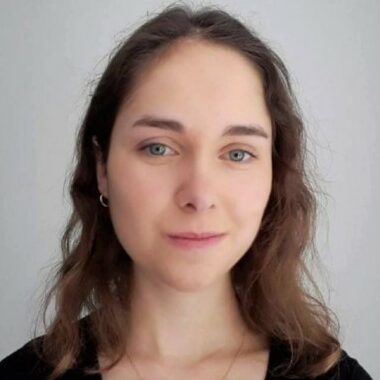
Leona Quigley
Leona has her roots in the South of Ireland, where she grew up on her family farm. She went on to study World Politics at Leiden University College, The Hague and then completed her MPhil in International History at Trinity College Dublin. Leona has now settled in Berlin, having fallen in love with the city. In her spare time she is working on perfecting her German in anticipation of her doctoral studies, during which she plans to study modern German social history. Her hobbies include bouldering, dancing and reading a healthy mix of history books and corny fantasy fiction. You can find more info about her on LinkedIn .
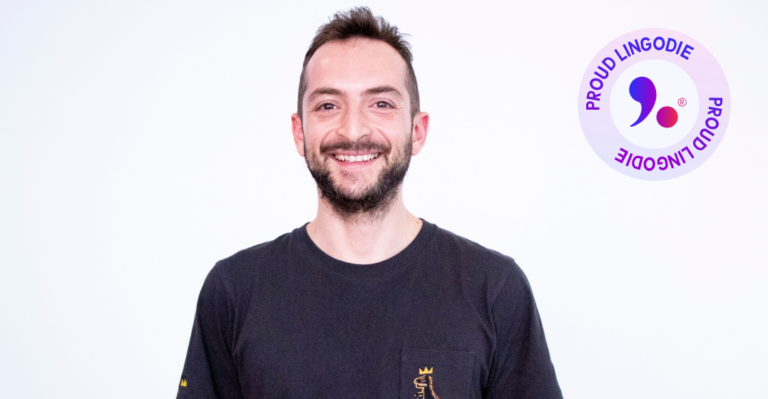
May 08, 2024
Lingoda’s career stories: Meet Andreas, our People Engagement Specialist
Have you ever wondered what it’s like to work at a company where your passion for languages fuels your career?...

May 06, 2024
How to talk about your hobbies in German
If you’re starting your adventure with the German language, diving into conversations about your hobbies can be a fantastic icebreaker....

Crack the German code: Your guide to making friends in Germany
Moving to a new country and building a whole new social circle can be an intimidating experience. This is especially...
Level up your language skills with Lingoda. Take our placement test for free and get started.

Doctoral degrees at FAU
Doctoral degrees and postdoctoral studies
As an internationally renowned research university FAU has excellent opportunities for postgraduate and postdoctoral study. There are nine doctoral titles which can be obtained on completion of a doctoral degree according to the subject, and postdoctoral candidates can also achieve a Habilitation, which is generally associated with the right to teach at a German university. Supporting young researchers is a priority at FAU. After all, excellent doctoral candidates are one of the University’s most valuable assets. If you have an above-average or excellent postgraduate degree and the dedication and creativity required for independent academic research, FAU welcomes your proposal for doctoral research.
For further information visit the website of our Graduate School .
PhD, Postdoc, and Professor Salaries in Germany
Germany is one of the leading countries for research and a hub for innovation. The country’s high quality of life combined with lower cost of living make it an attractive destination for international researchers. Are you contemplating a move to Germany? Here is a breakdown of the most common German academic jobs and their salaries. All salary statistics in this article are in Euros per month and are pre-tax.
Doctorate Degree
In Germany applicants must apply for a preset doctoral project that is usually tied to a professor’s own research. Students do not do any coursework; they start working on their project immediately. They are also required to take on some teaching responsibilities. The time it takes to earn a doctorate depends on the field, but three to five years is typical.
The salaries of PhD students are based on the federal wage agreement ( Tarifvertrag der Länder or TV-L). There are several pay scales ( Entgeltgruppe ) within the TV-L but PhD students are usually paid at the TV-L E13 level. Within this level, there are three factors that determine the student’s actual salary. The first is the pay grade ( Stufe ) which is based on the number of years of experience you have. Most PhD students start at Stufe 1 and progress through the grades as they gain years of seniority. The next factor is the working hours (50%, 67%, 75%, or 100%) and the final factor which federal state the university is in. You can find the salary calculators for each state here . For example, the salary range for a 100% PhD student is €4,053-€5,701 per month while the range for a 67% PhD student is €2,729-€3,820 per month.
Postdoctoral Researcher/Fellow
After earning their doctorate, researchers go on to a postdoc. A postdoc is a continuation of the researcher’s training that allows them to further specialize in a particular field and learn new skills and techniques. It may require them to take on teaching responsibilities. German postdocs typically last two to four years.
Like all non-tenured academic positions in Germany, postdoc salaries are fairly rigid. They are based on the same TV-L federal wage agreement as PhD salaries. The salaries are determined the same way too, taking into account pay scale, pay grade, working hours, and state. You can find the salary calculators for each state here . Postdocs are paid at the E13 or (less commonly) E14 level , with the exact starting pay grade depending on how their years of experience (bachelor's, Master’s, and PhD) are counted. The salary range for a 100% E13 postdoc is €4,053-€5,701 per month and the salary range for a 100% E14 postdoc is €4,419-€6,076 per month.
Juniorprofessur/Juniordozent
Junior professors positions offer early career academics the opportunity to research, supervision, administration, and teaching experience on equal terms to other university instructors. Junior professorships are usually for three to four years and can be extended for a total of six years. It is often a temporary position, however, certain universities offer a tenure-track option. Germany has recently signed an agreement to create 1,000 tenure-track junior professorships by 2032.
Junior professors, like all German professors, are paid according to the W- Besoldung salary table . This scale dictates base salaries according to which state the university is in. Unlike the PhD and postdoc pay scale, there are no pay grades within this scale. A W1 professor will make minimum €4,713-€5,301 per month.
Professur (W2)
To become a professor, an academic needs to have completed the Habilitation, have a positive evaluation as a junior professor, or have led their own junior research group. W2 professors are considered independent researchers and generally have permanent positions. Internal promotion to these positions is not encouraged in Germany. With the exceptions of junior professors, academics cannot be appointed a professor at the university they did their Habilitation.
The base salary for a W2 professor is €5,365-€6,676 per month depending on which state the university is in. In Bund, Bayern, Hessen, and Sachsen there are multiple pay grades within the W2 band meaning the professor’s salary will increase in five or seven years in the position. Salaries can also be increased by family allowances, retention payments, and performance bonuses. As professors are civil servants with high job security, they do not typically pay the same social insurance contributions as other employees.
Professur (W3)
A W3 professor is the highest German academic position that usually involves responsibility of a chair or for an institute. The requirements to become a full professor are very demanding and as a consequence, there is often a minimum age requirement for this sort of professorship. Professors in Germany are public servants and as such have permanent positions at their universities.
The base salary for a W3 professor is €5,343-€7,578 per month depending on which state the university is in. In Bund, Bayern, Hessen, and Sachsen there are multiple pay grades within the W3 band meaning the professor’s salary will increase in five or seven years in the position. Salaries can also be increased by family allowances, retention payments, and performance bonuses. As professors are civil servants with high job security, they do not typically pay the same social insurance contributions as other employees.
Discover related jobs
Discover similar employers
Accelerate your academic career
How to Find a Postdoc Position
Wondering how to find a postdoc position? The application system can be ...
Don’t Fall Prey to Predatory Journals
These journals just want your money.
6 Tips to Get the Most Out of a Conference
How do you make sure you really take advantage of all that a conference ...
The Academic Career Path in Switzerland
Swiss academic titles are slightly different from their American equival...
Skype Interview Tips
There are a few practical things to keep in mind when preparing for a vi...
"I found my PhD position on Academic Positions."
When I started looking for positions abroad in Sweden, I came across a p...
Jobs by field
- Electrical Engineering 163
- Machine Learning 153
- Programming Languages 146
- Artificial Intelligence 140
- Molecular Biology 127
- Mechanical Engineering 125
- Cell Biology 117
- Electronics 104
- Materials Engineering 102
- Materials Chemistry 97
Jobs by type
- Postdoc 344
- Assistant / Associate Professor 138
- Researcher 123
- Professor 105
- Research assistant 97
- Engineer 75
- Lecturer / Senior Lecturer 64
- Management / Leadership 48
- Tenure Track 37
Jobs by country
- Belgium 296
- Netherlands 151
- Switzerland 116
- Morocco 114
- Luxembourg 60
- United Kingdom 48
Jobs by employer
- KU Leuven 118
- Mohammed VI Polytechnic Unive... 114
- Ghent University 71
- KTH Royal Institute of Techno... 65
- ETH Zürich 64
- University of Luxembourg 59
- University of Twente 47
- Eindhoven University of Techn... 41
- Karolinska Institutet 30
This website uses cookies
Multiple outstanding fully-funded PhD positions available in Biological Sciences at GenEvo in Germany

Offer Description
Thinking of doing a PhD at the interface of Molecular & Evolutionary Biology ?
The Research Training Group 2526 "Gene Regulation in Evolution“ (GenEvo) , which is funded by the DFG (German Research Foundation), is offering projects on all levels of organismic complexity, from changes in genes and proteins to the evolution of symbiotic and parasitic behavior. As a GenEvo PhD student, you will join a community of passionate scientists who are applying a broad spectrum of methods on model and non-model organisms.
GenEvo brings together scientists from evolutionary and molecular biology. It aims to solve a number of recent research questions and to train a new , interdisciplinary generation of PhD students in subjects that are rarely taught in combination : evolutionary inference, epigenetics, gene regulation, omics techniques and bioinformatics.
The PhD students get training and guidance in both research fields to ensure an optimal collaboration within the RTG for best results and personal development.
For detailed information about each PhD program, including specific requirements and other important details, we recommend visiting the following links:
1. Mechanistic insights into the evolution of circadian gene regulation
2. Co-option of cilia proteins in gene regulation
3. Geometric epigenetic adaptation
4. Epigenetics and sex chromosomes through the lens of evolution
5. Sex- and caste determination during development in the termite Reticulitermes flavipes
6. The role of small RNAs in transgenerational plasticity of a clonal plant upon herbivory
7. Molecular manipulation of host phenotype via regulatory interference
8. The role of epigenetic mechanisms in the regulation of division of labor in the ant Temnothorax longispinosus
9. Gene regulation and evolution of dormant states in bees
Job Information
- Organisation/Company: PhD Programme "Gene Regulation in Evolution"
- Department: Institute of Molecular Biology
- Research Field: Biological sciences
- Researcher Profile: First Stage Researcher (R1)
- Country: Germany
- Application Deadline: 15 Jul 2024 - 12:00 (Europe/Berlin)
- Type of Contract: Temporary
- Job Status: Full-time
- Is the job funded through the EU Research Framework Programme?: Not funded by an EU programme
- Is the Job related to staff position within a Research Infrastructure?: No
What we offer:
- Exciting, interdisciplinary projects in a vividly international environment, with English as our working language
- Advanced training in scientific techniques and professional skills
- Access to state-of-the-art Core Facilities and their technical expertise
- 14 funded PhD positions (employment contract)
- A lively community of34 PhD students supported by 28 Principle Investigators
- Collaboration with the International PhD Programme (IPP) at IMB with more than 200 PhD students from 40 different countries
Within the programme the Faculty of Biology of Mainz University (JGU) and the Institute of Molecular Biology (IMB) collaborate — both modern research institutions located on the bustling campus of Mainz University in Germany. With a population of 210,000, of which about 40,000 are students, the city of Mainz is charming and open-minded and within easy reach of cosmopolitan Frankfurt and its international airport , the Rhine valley region with its castles, vineyards, and nature reserves , and the equally picturesque cities of Wiesbaden and Heidelberg.
Requirements:
Are you an ambitious, young scientist looking to push the boundaries of research while interacting with colleagues from multiple disciplines and cultures ? Then joining GenEvo is your opportunity to give your scientific career a flying start!
All you need is:
- Master or equivalent
- Motivation to contribute to the forefront of science in molecular and evolutionary biology
- Interactive personality & good command of English
- 2 letters of reference
The deadline for applications is 15 July 2024. Interviews will take place on 9-10 September 2024. Starting date will be 1 January 2025.
For more details on the projects offered and how to apply via our online form, please visit https://www.genevo-rtg.de/application
Additional Information
- Website for additional job details: https://www.genevo-rtg.de/application
Work Location(s)
- Organisation/Company: PhD Programme "Gene Regulation in Evolution"
- Country: Germany
- City: Mainz
- Postal Code: 55128
- Street: Ackermannweg 4
- Where to apply: https://www.genevo-rtg.de/application
E-Mail: [email protected]
Website: EURAXESS WORLDWIDE
General election latest: Sir Keir Starmer to make personal pledge in first major campaign speech as parties clash over security
The Labour leader is set to say his party is ready to meet the "core tests" set by the British people for their government in his first major speech of the general election campaign. Meanwhile, Rishi Sunak will be out and about making the case for his National Service proposals.
Monday 27 May 2024 09:11, UK
- General Election 2024
General election called for 4 July
- Starmer to deliver first major speech of election campaign - watch and follow live from 10am
- PM 'to double down on national service plan' as parties focus on security
- Tory defence minister criticised national service last week
- Farage challenged on 'offensive' comments about British Muslims
- Live reporting by Ben Bloch
Expert analysis
- Tamara Cohen: Farage's incendiary claims a question for Reform
- Adam Boulton: Why PM's big bet on security likely won't pay off
- Deborah Haynes : Next PM will have no time to play politics with defence
Election essentials
- Trackers: Who's leading polls? | Is PM keeping promises?
- Subscribe to Sky's politics podcasts: Electoral Dysfunction | Politics At Jack And Sam's
- Read more: What happens next? | Which MPs are standing down? | Key seats to watch | How to register to vote | What counts as voter ID? | Check if your constituency's changing | Sky's coverage plans
Finally with Christine Jardine from the Lib Dems, we asked if they would be prepared to go into coalition with Labour or the Tories after the election should neither party win a majority.
She replied that it's "a bit disrespectful to the voters" to start setting out those possibilities now.
"We have no arrangements or pacts or deals with anyone.
"We respect the fact that we have a general election and the voters will decide what the next parliament looks like."
Pushed on if the Lib Dems would consider a pact in due course, Mr Jardine said they are "focusing at the moment on winning as many seats as we possibly can".
"We are second in about 90 seats in England to the Conservatives. Now, we're nt saying for a minute we are going to win all of those, and we are aiming to increase the number of seats in Scotland.
"So what we are focusing on is winning as many seats as possible so that people voting for us know that they are voting for change."
We asked Christine Jardine of the Liberal Democrats what the party's plan is for young people as the Tories continue to argue for their national service plans.
She replied that they "want to protect young people's future" following the "trauma" of the COVID pandemic.
"And then, you know, a lot of them are now coming out into work to find that the economy is in a mess and that their opportunities have been affected."
On the Tories' national service plans, Ms Jardine said serving in the army is "a great career, but it should be your choice whether or not you go into it".
She argued that Boris Johnson deprived young people of opportunities with COVID restrictions, Liz Truss "messed up the economy", and Rishi Sunak now mandating army or community service.
"So we want to focus on young people, on their education and providing them with the health support, the dental support, the mental health support."
We challenged Ms Jardine on whether young people can really trust the Lib Dems, given that in 2010 they pledged to not raise tuition fees, but then supported a move to do exactly that when in coalition with the Tories.
She replied that universities in Scotland are "facing all sorts of financial problems" due to lack of tuition fees or graduate tax.
"And then we weren't the main party in power. So we had to compromise. We had to meet the Conservatives halfway.
"I think it's oversimplifying it to go back 15 years. Where we are now is what matters."
She said the Lib Dems have "learned lessons over the past 15 years", and said it's clear that opportunities for young people need to improved.
We've just been speaking with Christine Jardine from the Liberal Democrats, and we asked how they plan to gain support in Scotland amid tricky polling.
But she rejected that characterisation, saying they are doing "extremely well" in the seats they currently hold in Scotland.
"People recognise that we work for our communities and that's what is important to us - to fighting, to combating the effects there of the economic mess that the Conservatives have made."
She also pointed to lack of GPs and, in particular, dentists.
What are the rules on voter ID? How does tactical voting work? In what different ways can you cast your ballot?
The countdown to the election is on - and already the amount of information can seem overwhelming.
We cut through the noise to bring you what you need to know, from registering to vote, to election day and what happens next.
Read on here...
Last week, the former Labour leader, Jeremy Corbyn, announced he will be standing as an independent after being barred from standing for Labour following his response to the report into antisemitism in the party under his leadership ( more here ).
Asked how concerning that is for Labour's chances at winning Islington North, shadow education secretary Bridget Phillipson replied: "Jeremy's in the past now.
"He's not a Labour member. He's not a Labour candidate.
"We've got a brilliant candidate standing in Islington North who'll be fighting hard for every vote."
Labour's focus, she said, is "earning the trust of the British people and securing the Labour government and making the case for the kinds of change that we could deliver if we win the next election"
We asked Labour's Bridget Phillipson for her view on the Tories' national service plans, and how Labour will put the country on a footing to combat the challenges of this era.
She replied: "I just think this idea that the Conservatives have set out is a ridiculous gimmick, especially when you consider the fact that they've cut back our armed forces to the lowest point in hundreds of years."
She pointed to comments by former defence chiefs saying this is not the way to fill the holes in our armed forces.
"It is incredibly important that we keep our country safe, but with every hour there seems to be a fresh unravelling of this ridiculous gimmick that the Conservatives have set out, totally unfunded. No plan to make it happen."
Asked what Labour's plan is, Ms Phillipson said they will conduct a "rapid review within the first 100 days of all of the risks that our country faces to make sure that we can absolutely keep our country safe".
As the opposition party, she said, they do not have access to classified briefing materials to understand the full details of the threats facing the UK.
"We would want to take stock immediately to make sure we can respond to the very big challenges we face at the moment as a country," she said.
"Alongside that, a security and defence review to make sure that we're responding to those longer term challenges."
We spoke a short while ago with the shadow education secretary, and we started by asking about the risk of private schools closing due to Labour's plans to impose VAT on private school fees - and therefore there not being the money the party wants to raise to invest in state school teachers.
One example is a school in Hampshire, that said in a statement that blamed "adverse political and economic factors" for having to close.
Bridget Phillipson replied that in the case of that particular school, they themselves said they'd "had falling pupils over many years, and they've not been able to turn that around".
On the policy itself, the senior Labour MP pointed to analysis from the Institute for Fiscal Studies (IFS) that said the policy would "raise £1.3bn to £1.5bn net", which Labour would invest in 6,500 new teachers and mental health support.
"My priority, if I were education secretary in a Labour government, would be to deliver improved investment directly into our state schools, because that is where the vast majority of our children go to school," she said.
We asked next if state schools have the capacity to potentially take on extra pupils due to either private school closures or parents simply no longer being able to afford the fees.
Ms Phillipson replied: "Firstly, I don't accept that we will see that kind of change. That wasn't the conclusion that the Institute for Fiscal Studies reached.
"But secondly, in our state schools, we're actually facing a situation at the moment where we've got falling numbers, so fewer young people coming through our schools.
"We're actually going to be in that position in the years to come, of state schools facing those kinds of pressures about whether they've got enough students within their classrooms."
More broadly, she said it's a question of "political priorities", saying she would "just gently say to private schools, there's probably a lot that they could learn from state schools about how they've had to manage a really tight budget in recent years".
We put to Tory minister Anne-Marie Trevelyan that the national service plans do not address key challenges facing young people, such as housing, cost of living, getting an NHS appointment, and more.
Asked if she believes this policy really is a vote winner in that context, she replied that it is "an important part of all the manifesto commitments that the prime minister will set out in the weeks ahead".
But she went on to say that COVID and the invasion of Ukraine "created enormous financial pressures", and said Rishi Sunak has been "laser-like focussed" on reducing inflation, to then bring down interest rates and reduce the cost of living.
The reduction in inflation, she argued, is "a demonstration that he has the incredible determination, energy and focus to make sure that those critically important issues are at the heart of Conservative policymaking".
The Conservative Party has confirmed that the royal children would not be exempt from national service - but we asked what exemptions there would be.
Foreign Office minister Anne-Marie Trevelyan could not provide much detail, saying the royal commission would examine that to make it "clear for all".
"But fundamentally, the prime minister's been clear that this would be for the vast majority of our young people, our 18-year-olds.
"This would be a mandatory part of both their continued education and journey to adulthood."
We put to the minister that, for example, while children from a privileged background may have no barriers to undertaking national service, but a young carer may not be able to - and would therefore lose career opportunities as a result.
To that end, we asked if young people living in difficult circumstances will be even further penalised, and Ms Trevelyan replied: "The royal commission would be invited to look at the detail.
"Those sorts of specific issues, cases, would be looked at, and some thoughtful policy would be set out accordingly."
The Conservative Party says Rishi Sunak's national service policy will be mandatory - but Home Secretary James Cleverly has told Sky News that teenagers would not be jailed for refusing .
We asked Foreign Office minister Anne-Marie Trevelyan exactly what the consequences would be for not participating, and she could not provide clarity.
"There would be a royal commission to work out the details," she said, and reiterated there would not be a "criminal sanction".
She argued that it would be similar to remaining in education until age 18, and "employers would be clear that they would look to see what you had done".
"This would become part of the normal toolkit that young people would present as they move through their careers going forwards."
Challenged on reports of leaked Tory party documents saying young people could be jailed, despite the home secretary's assurances yesterday, Ms Trevelyan reiterated that there would not be a "criminal sanction".
They would ask the royal commission to look at "appropriate incentivisation", she said, and also argued that it would become a normal part of growing up.
Be the first to get Breaking News
Install the Sky News app for free

Macron makes rare state visit to Germany to boost ties, defend democracy
For the first time in nearly a quarter of a century, a French president visits Berlin to warm frosty ties.

Emmanuel Macron has begun the first state visit to Germany by a French president in 24 years, to boost ties between the two countries and to emphasise the importance of defending democracy against nationalism in upcoming European elections.
“Franco-German relations are indispensable and important for Europe,” said Macron at the start of his three-day state visit to Germany on Sunday. He rebuffed the suggestion that the relationship, often described as the engine of Europe, has begun to stutter.
Keep reading
Russia jails hypersonic missile scientist for 14 years for treason, a un resolution can help us, survivors, fight srebrenica genocide denial, germany’s afd bans top candidate from eu poll events over nazi comments.
“That is not true. We are moving forward,” Macron said through a translator.
Upon landing in Berlin, Macron immediately travelled to the German capital’s government quarter to meet with President Frank-Walter Steinmeier and attend a democracy-themed festival.
Steinmeier greeted Macron and called his visit “proof of the depth of the Franco-German friendship”. He said that despite sometimes differing on individual policy points, Berlin and Paris always “come to an agreement in the end”.
The French president also emphasised the importance of the European elections in June and called the European Union a defender of democracy and common values. He warned of a “form of fascination for authoritarianism which is growing” in the two EU nations. “We forget too often that it’s a fight” to protect democracy, Macron said.
If the nationalists had been in power in Europe in the last years, “history would not have been the same”, he said, pointing to decisions on the coronavirus pandemic or Russia’s invasion of Ukraine.
The German president too noted how rights “did not fall from the sky”, saying they need to be fought for.
“There is much from both presidents the stress from them about the need for European citizens to think very carefully when they cast their vote in the EU elections in a few weeks,” said Al Jazeera’s Dominic Kane.
Polls show that the European elections could turn into a major potential embarrassment for Macron as his coalition is trailing well behind the far right and may struggle to even reach third place. In Germany too, all three parties in Chancellor Olaf Scholz’s coalition are polling behind the far-right Alternative for Germany (AfD) party in surveys, despite a series of scandals embroiling the anti-immigration party.
After the talks with Steinmeier, Macron is due to bring his message to Dresden in the former East German Saxony state, where the AfD has a strong supporter base.
Tuesday sees Macron in the western German city of Munster and later in Meseberg, outside Berlin, for talks with Scholz and a Franco-German joint cabinet meeting.
Beyond making joint calls for the European elections, the three-day visit will seek to emphasise the historic importance of the post-war relationship between the two key EU states, as France next month commemorates 80 years since the D-Day landings that marked the beginning of the end of German World War II occupation.
In a question-and-answer session on social media with young people this month, Macron enlisted help from Scholz when asked if the Franco-German “couple” was still working.
“Hello dear friends, long live French-German friendship!” Scholz said in French in a video on Macron’s X feed. “Thank you Olaf! I very much agree with you,” Macron replied in heavily accented German.
Officials from both sides stressed that while there are periodic tensions on specific issues, the fundamental basis of the relationship remains sound.
But Macron’s refusal to rule out sending troops to Ukraine sparked an unusually acidic response from Scholz that Germany had no such plans. Germany also does not share Macron’s enthusiasm for a European strategic autonomy less dependent on the United States.

Toni Kroos: Real Madrid midfielder to retire from football after Euro 2024

Real Madrid and Germany midfielder Toni Kroos has announced he will retire from professional football following the conclusion of this summer’s European Championship .
The 34-year-old’s last game for Real Madrid will be the Champions League final against Borussia Dortmund on June 1 at Wembley, where the German has the chance to win his fifth European Cup with the club.
Advertisement
On Monday, Kroos informed Madrid head coach Carlo Ancelotti of his intention to call time on his career.
In a statement confirming his retirement on Tuesday, Kroos said: “Real Madrid is and will be my last club”.
He continued: “After 10 years, at the end of the season this chapter comes to an end. I will never forget that successful time!
“I would particularly like to thank everyone that welcomed me with an open heart and trusted me.
“But especially I would like to thank you, dear Madridistas, for your affection and your love from the first day until the last one.
“At the same time this decision means that my career as an active footballer will end this summer after the European Championship.”
💜 #GraciasKroos 💜 pic.twitter.com/i78nLxczry — Real Madrid C.F. 🇬🇧🇺🇸 (@realmadriden) May 21, 2024
Kroos concluded: “I am happy and proud, that in my mind I found the right timing for my decision and that I could choose it by my own.
“My ambition was always to finish my career at the peak of my performance level. From now on there is only one leading thought: a por la 15!!! HALA MADRID Y NADA MAS!”
The midfielder, who joined Madrid from Bayern Munich in 2014, has won four La Liga titles during his decade-long stay in the Spanish capital.
A club statement released on Tuesday morning thanked the German for his integral contribution to one of the most successful period in the club’s 122-yearn history.
The statement said: “Real Madrid would like to express its gratitude and affection to Toni Kroos, a player who will go down in Real Madrid history as one of our club and international football’s greatest legends.

Late-career Toni Kroos can still dominate a Champions League tie like few others
“Kroos will remain forever in the hearts of every Madridista thanks to his mastery of the game and the fact he has given his all for our jersey, a steady example of the values of Real Madrid.”
Club president Florentino Pérez added: “Toni Kroos is one of the great players in Real Madrid history and this club will always be his home.”
Kroos was included in Germany head coach Julian Nagelsmann’s provisional squad last week after deciding to return to the national team at the end of February.
The midfielder has 108 appearances for Germany and was a crucial part of Joachim Low’s side that won the 2014 World Cup in Brazil.

Kroos' sublime return suggests Nagelsmann's decision might be a masterstroke
The greatest German player of his generation?
Analysis by Sebastian Stafford-Bloor
Is Toni Kroos the greatest German player of the current generation?
He is certainly in the conversation. He was fundamental to the World Cup win in 2014 and woven into the fabric of the four Real Madrid teams to have won the Champions League in the last decade.
In a week and a half, he has a good chance of collecting his fifth winners’ medal. An extraordinary record for an extraordinary player – perhaps one of the smoothest passers of the modern era, certainly among its most watchable.
In a sense, though, Kroos is not typically German. His style of play, perhaps, is not associated with the national archetype, even if that is based an outdated cliché.

The circumstances under which he left Bayern Munich in 2014 also makes him an outlier. From a very early age, Kroos knew his value – and in a way that to some, particularly in the more conservative parts of the country, likely saw as brash.
There is a famous story about Uli Hoeness chastising Kroos is the tunnel after a game in February. Kroos’ agent, Volker Struth, was renegotiating his contract and Hoeness was – to put it mildly – affronted by the wage demands.
“Put your agent right, you’ll never get €10m”, Hoeness is reported to have said.“I don’t need to,” Kroos replied. “We agree about that.”
Some of that acrimony lasted. Hoeness was actually quite critical of the decision to recall Kroos to the national team in December 2023 – “a signal from the Titanic” he described it as – but there is no question that Kroos has made Nagelsmann’s Germany better.
Amazingly, he looks almost unchanged from the player who left Bayern all those years ago. And perhaps that describes Toni Kroos most vividly: a world class footballer, but also a timeless one.
(Top photo: VI Images via Getty Images)
Get all-access to exclusive stories.
Subscribe to The Athletic for in-depth coverage of your favorite players, teams, leagues and clubs. Try a week on us.
Cookie Consent
To improve the website, the DAAD and third parties set cookies and process usage data . In doing so, the DAAD and third parties transfer usage data to third countries in which there is no level of data protection comparable to that under EU law. By clicking the "Accept all" button, you consent to this processing. You can also find selection options and explanations of these cookies and processing at the end of this page under "Cookies". There you can withdraw consent at any time with effect for the future.
- Privacy Policy
Jump to content
How to Find Your PhD Position in Germany
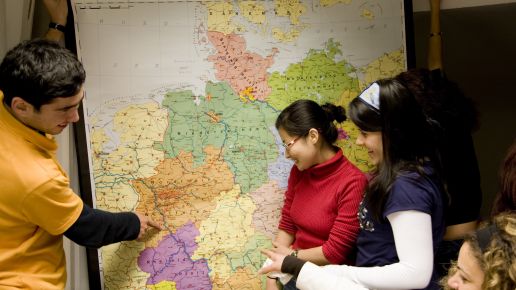
Are you looking for a doctoral position in Germany? In the DAAD databases, you can find open PhD positions in all fields and all over Germany. When you have found an offer that matches your interests you can apply online at the offering university.
Deutscher Akademischer Austauschdienst e.V. Kennedyallee 50 53175 Bonn
All addresses in the DAAD Network
DAAD Newsletters
Receive regular up-to-date information about our work and organisation.
Newsletter - DAAD
Useful Links
- Find Scholarships
- DAAD offices worldwide
Jump to top of page
- Election 2024
- Entertainment
- Newsletters
- Photography
- Personal Finance
- AP Investigations
- AP Buyline Personal Finance
- AP Buyline Shopping
- Press Releases
- Israel-Hamas War
- Russia-Ukraine War
- Global elections
- Asia Pacific
- Latin America
- Middle East
- Election Results
- Delegate Tracker
- AP & Elections
- Auto Racing
- 2024 Paris Olympic Games
- Movie reviews
- Book reviews
- Personal finance
- Financial Markets
- Business Highlights
- Financial wellness
- Artificial Intelligence
- Social Media
Germany and Real Madrid great Toni Kroos to retire after Euro 2024
Real Madrid’s Toni Kroos, left, challenges for the ball with Bayern’s Jamal Musiala during the Champions League semifinal second leg soccer match between Real Madrid and Bayern Munich at the Santiago Bernabeu stadium in Madrid, Spain, Wednesday, May 8, 2024. (AP Photo/Jose Breton)
From left, Real Madrid’s Toni Kroos, Luka Modric, Nacho and Dani Carvajal celebrate as they hold the Spanish La Liga soccer trophy at the Cibeles Square a week after clinching La Liga title in Madrid, Spain, Sunday, May 12, 2024. (AP Photo/Manu Fernandez)
Real Madrid’s head coach Carlo Ancelotti, right, and Real Madrid’s Toni Kroos during the Spanish La Liga soccer match between Real Madrid and Deportivo Alaves at the Santiago Bernabeu stadium in Madrid, Spain, Tuesday, May 14, 2024. (AP Photo/Jose Breton)
Madrid’s Toni Kroos celebrates the opening goal during the Champions League, semifinal first leg, soccer match between FC Bayern Munich and Real Madrid in Munich, Germany, Tuesday, April 30, 2024. (Matthias Balk/dpa via AP)
- Copy Link copied

MADRID (AP) — Toni Kroos will retire from soccer after trying to give Real Madrid yet another Champions League trophy and lead Germany to the European Championship title at home.
The 34-year-old German midfielder said Tuesday it was a tough decision, but that the timing felt “somehow perfect.”
“I always wanted to leave at the peak of my abilities and I know, and from a lot of examples you see, that it isn’t easy, that you can miss that point in time very quickly,” Kroos said on a podcast he hosts with his brother.
“I never wanted to have the feeling at the end that the club, the fans, the people around me would have to tell me, ‘That’s enough,’ or that I’d spend another two or three years sitting on the bench.”
Madrid thanked Kroos and hailed his achievements with the team.
“Real Madrid would like to express its gratitude and affection to Toni Kroos, a player who will go down in Real Madrid history as one of our club and international football’s greatest legends,” the club said.
Kroos was a World Cup champion with Germany in 2014 in Brazil, and had a successful career with Bayern Munich as well, helping it win one Champions League and three German league titles.
Madrid will face Borussia Dortmund in the Champions League final on June 1 in London. His European trophies with Madrid came in 2016, 2017, 2018 and 2022. He won the Champions League with Bayern in 2013.
Kroos has been with Madrid since 2014, helping it win 22 titles, including four European Cups and four Spanish leagues. He made 463 appearances with the club, which called the midfielder “a key player in one of the most successful periods of Real Madrid’s 122-year history.”
“Toni Kroos is one of the great players in Real Madrid history and this club will always be his home,” club president Florentino Pérez said.
Madrid said Kroos will remain forever in the hearts of every fan “thanks to his mastery of the game and the fact he has given his all for our jersey, a steadfast example of the values of Real Madrid.”
Kroos’ contract with Madrid was expiring at the end of this season and the club and the player had reportedly been negotiating an extension.
Kroos said in February he agreed to play for Germany at Euro 2024 after a request from coach Julian Nagelsmann. He has not played for for the national team in almost three years, since Germany’s loss to England in the second round of the last European Championship.
Kroos was named last week in Germany’s preliminary squad for the tournament.
He had said a few months ago that he didn’t know what would happen next season.
“I thought it over for a really long time and in the last few days I’ve reached the conclusion that this season, this wonderful season, the 10th season with Real, is also my last season with Real,” Kroos said Tuesday.
“And anyone who has paid attention when listening to me over the last few months or years will have heard the sentence at one time or other that the only option for me was to end my career at Real Madrid. And if you can put one and one together, you know that my last season with Real means it’s over this summer. No more Real, no more football.”
AP Sports Writer James Ellingworth contributed to this report.
AP soccer: https://apnews.com/hub/soccer

- { expandedNavigation=true; activeIndex=0; }"> Research landscape
- { expandedNavigation=true; activeIndex=1; }"> Your goal
- { expandedNavigation=true; activeIndex=2; }"> Plan your stay
- { expandedNavigation=true; activeIndex=3; }"> Success stories
- { expandedNavigation=true; activeIndex=4; }"> Our service
- R&D policy framework
- Research infrastructure
- Research funding system
- Universities
- Universities of applied sciences
- Technical universities
- Top universities
- Fraunhofer-Gesellschaft
- Helmholtz Association
- Leibniz Association
- Max-Planck-Gesellschaft
- Academies of sciences and humanities
- Federal institutions
- State research institutions
- What is R&D in German business?
- Why is collaboration important?
- Which sectors carry out R&D?
- Which are the leading companies?
- How do German businesses compare internationally?
- How is the start-up scene set up?
- How do I start a career?
- Good reasons
- Two ways to get your PhD
- Find your PhD position
- How to apply for a PhD
- Funding programmes
- Funding organisations
- Funding databases
- Job portals
- Career options & dual careers
- Funding & awards
- Potential employers
- Research fields
- Entry and residence
- German money-saving tips
- Cost of living
- Social insurance and health
- Bringing your family
- Information for your partner
- Support for families
- Finding a place to live
- Funding opportunities
- Recognition of professional qualifications
- Counselling
- Latest Thinking
- First-hand experiences from international researchers
- On-site consultation
- Our publications
- Research news
- Online talks
- Topics in focus
Structured PhD programmes
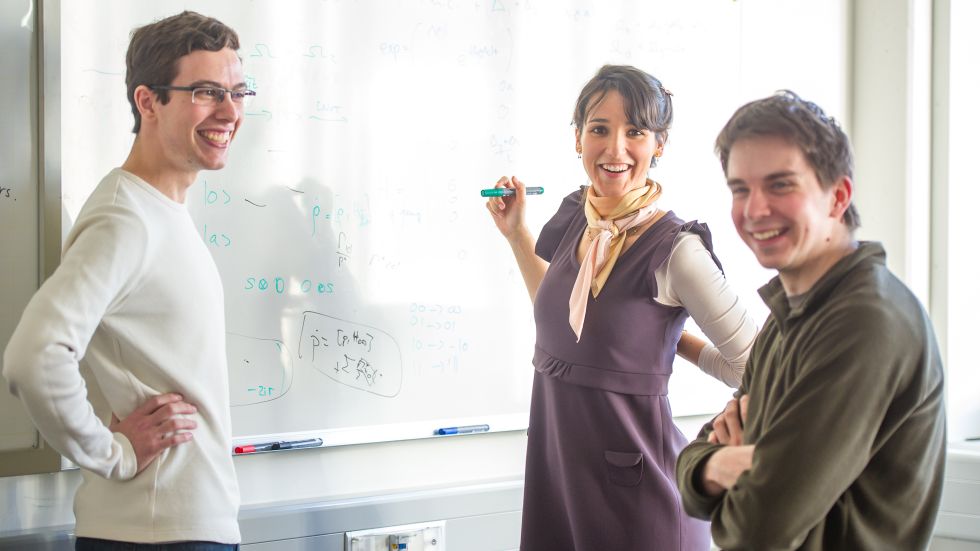
DAAD/Volker Lannert
Structured doctoral programmes differ from traditional doctoral research. In Germany, structured doctoral programmes are very similar to the PhD programmes in English-speaking countries , in which a team of supervisors look after a group of doctoral students.
Structured doctoral programmes often have a strong international orientation with English as the team language. Unlike the individual doctorate model that can be freely structured to suit the individual research project, here doctoral students and their research proposals have to fit in with an existing PhD programme.
The doctorate frequently entails a clearly structured doctoral study programme with compulsory attendance at lectures or seminars and interim assessment (credit points). The programme frequently also covers academic and scientific methods or soft skills , such as presentation techniques.
As a rule, PhD Students work steadily at realising their research project within the team and with intensive support from a group of academic staff (often referred to as the “thesis committee”).
The duration of your studies is generally limited to three to five years, and there is usually a fixed curriculum within which you work toward your doctorate and write your thesis.

IMAGES
VIDEO
COMMENTS
Academic degree recognized in Germany. Typically, you'll need a master's degree or a German state examination (Staatsexamen) to qualify for a PhD program. Copy of master's thesis. Provide a copy of your master's thesis, showcasing your research skills and the depth of your academic work. Research proposal.
PhD Studies & Research. Science and research in Germany are characterised by a distinguished infrastructure, a wide variety of disciplines, well-equipped research facilities and competent staff. Germany offers various career opportunities for international PhD students and researchers. Discover Germany's top-tier PhD programs and research scene ...
In 2014 an incredible Number of 85,000 people chose Germany to write their dissertations or join one of our growing number of doctoral research teams. Discover your best route to a PhD in Germany, including financing options and advice on how to prepare for your research stay. Germany. All addresses in the DAAD Network.
A traditional PhD usually takes four years, compared to three years for a structured doctoral programme. The academic year in Germany is usually comprised of two semesters with the Wintersemester running from 1 October to 31 March and Sommersemester running from 1 April to 30 September.
How long it takes to complete an individual PhD is down to your schedule, or the period of your research grant, but the length of this form of PhD usually ranges from 3 to 5 years. ... Find out more about the two ways to do your PhD: www.research-in-germany.org > two ways to get a PhD ...
Beyond this, you may be required to pay fees. However, as with all levels of study in Germany, PhD students are also required to make a semester contribution of between €150 to €200 (~US$175-230) for administration and other costs. This means that your main expenses will be the general costs of living in Germany.
Finding a PhD position. PhDGermany publishes PhD openings in Germany that specifically target international applicants. Accordingly, in most cases the working language is English. Fluent knowledge of German is only required for certain special positions. PhDGermany helps you find the right PhD opening or supervisor for your doctoral thesis and ...
When you have found a suitable programme, submit an application to one of the professors in the PhD programme or to the appropriate selection committee - depending on the programme or call for proposals. Here are some useful tips that may help you succeed in your application: Invest a lot of time and effort in your search for the right programme.
Two ways to get your PhD . A doctorate is the highest academic degree that a university can award. In Germany, studying for a doctorate primarily means working intensely on a specific subject or research project for a long period of time.It typically takes five to six years to obtain a doctorate, though the length of time can vary.
To study for a PhD in Germany you will generally need to have completed a minimum of eight semesters of academic study. The final qualification you obtained must be equivalent to a German Masters degree. Your previous degree/s must also be recognised by the Dean's Office (Dekanat) or Board of Examiners ( Promotionsausschuss) at your university.
That's no surprise, as Germany invented the elite academic qualification in the 19th century. German PhDs cover subjects as diverse as history, linguistics, and philosophy, or chemistry, molecular biology, earth sciences, and computer science. Most lower level degree subjects can be extended to PhD level if the student desires.
Admission requirements for PhD in Germany. CV (Curriculum Vita) A doctoral thesis outline. Qualification equivalent. German language proficiency. English proficiency test. GRE or GMAT. Motivational letter. Recommendation letter.
You need to have completed a university degree and have been accepted as a doctoral candidate by a faculty at Heidelberg University. Enrolment is applied for via the heiCO online portal. It requires an activated Uni-ID and a fully completed heiDOCS doctoral file. If no Uni-ID is displayed in your heiDOCS doctoral file (page 1), please contact ...
PhD in Germany is almost free, if you have an excellent academic background.Read our blog for a complete guide on how to apply for PhD in Germany. ... The average length of this kind of PhD is 3 to 5 years. *Structured Programs with Doctorate in a Team of Researchers. Under structural program,
Culture. How to do a PhD in Germany . by Leona Quigley. Published on November 3, 2022 / Updated on January 3, 2024. Facebook. Post. Germany offers many exciting opportunities to pursue your doctoral studies, so here is what you need to know about PhD programs in Germany!
There are nine doctoral titles which can be obtained on completion of a doctoral degree according to the subject, and postdoctoral candidates can also achieve a Habilitation, which is generally associated with the right to teach at a German university. Supporting young researchers is a priority at FAU. After all, excellent doctoral candidates ...
Deutscher Akademischer Austauschdienst e.V. Kennedyallee 50. 53175 Bonn. Germany. Receive regular up-to-date information about our work and organisation. How the PhDGermany database can help you with your search for PhD positions.
10. Highly Likely. PhD in Germany is a 3-5 year long program, available to international students across various top universities. You might need top pay a semester fee between 100 and 325 EUR (8,900 to 28,930 INR) to pursue PhD courses in Germany. Know more about admission, fees, financial aid, and work opportunities after PhD in Germany!
Still, in places where the standard time for a PhD is 3 years, actual average completion time is usually 3.5 or 4 years, and any such extra time is usually unfunded, which often creates huge difficulties for international students and students from poor backgrounds.
Postdocs are paid at the E13 or (less commonly) E14 level, with the exact starting pay grade depending on how their years of experience (bachelor's, Master's, and PhD) are counted. The salary range for a 100% E13 postdoc is €4,053-€5,701 per month and the salary range for a 100% E14 postdoc is €4,419-€6,076 per month.
In this Uday Chopra (25) from India is a PhD candidate in the INSPIRE group at Johannes Gutenberg University Mainz I had taken part in a couple of internships in Germany during my master's in India and in addition to the quality of research here, I was quite satisfied with the work culture. case you will work (normally on a part-time basis ...
Offer Description. Thinking of doing a PhD at the interface of Molecular & Evolutionary Biology?. The Research Training Group 2526 "Gene Regulation in Evolution" (GenEvo), which is funded by the DFG (German Research Foundation), is offering projects on all levels of organismic complexity, from changes in genes and proteins to the evolution of symbiotic and parasitic behavior.
The home secretary outlined a surprising major Tory proposal to reintroduce National Service on Sky News this morning. Party insiders think the plan has been "under wraps for some time". Elsewhere ...
Emmanuel Macron has begun the first state visit to Germany by a French president in 24 years, to boost ties between the two countries and to emphasise the importance of defending democracy against ...
Since Russia began its full-scale invasion of Ukraine in February 2022, Germany and Europe's long-time security dependence on the United States is at the heart of the political debate.
May 21, 2024. 54. Real Madrid and Germany midfielder Toni Kroos has announced he will retire from professional football following the conclusion of this summer's European Championship. The 34 ...
Information on how to find a PhD position in Germany. Cookie Consent. To improve the website, the DAAD and third parties set cookies and process usage data.In doing so, the DAAD and third parties transfer usage data to third countries in which there is no level of data protection comparable to that under EU law. By clicking the "Accept all" button, you consent to this processing.
Updated 6:52 AM PDT, May 21, 2024. MADRID (AP) — Toni Kroos will retire from soccer after trying to give Real Madrid yet another Champions League trophy and lead Germany to the European Championship title at home. The 34-year-old German midfielder said Tuesday it was a tough decision, but that the timing felt "somehow perfect.".
Structured doctoral programmes differ from traditional doctoral research. In Germany, structured doctoral programmes are very similar to the PhD programmes in English-speaking countries, in which a team of supervisors look after a group of doctoral students.. Structured doctoral programmes often have a strong international orientation with English as the team language.
Olaf Scholz on why Vladimir Putin's brutal imperialism will fail. Germany's chancellor says Europe needs more military muscle. Illustration: Dan Williams. May 23rd 2024. E ARLIER THIS month ...